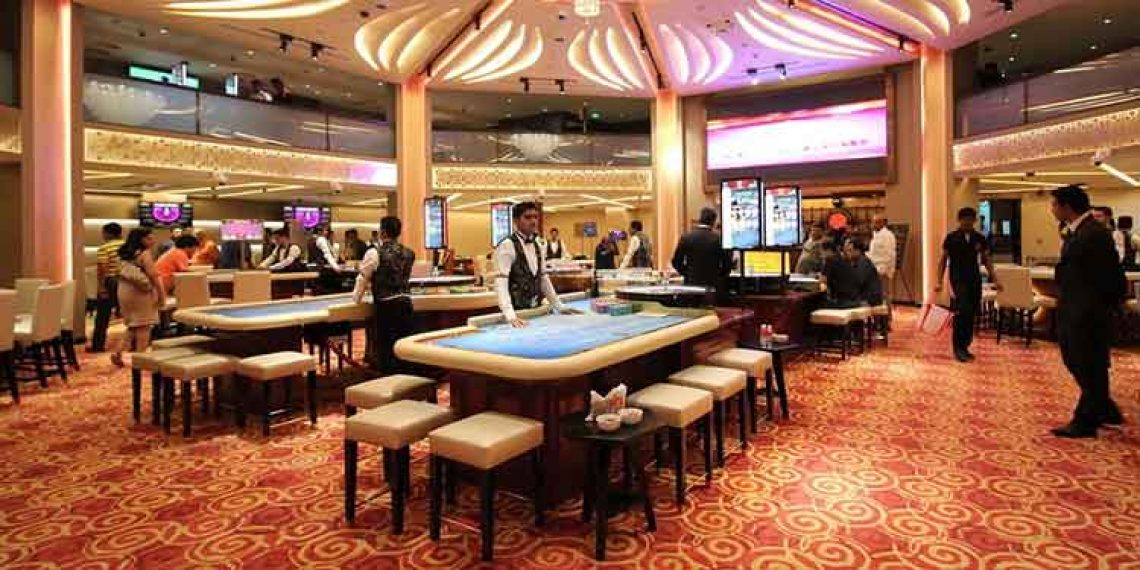Why No Craps At Indian Casinos
- Why No Craps At Indian Casinos No Deposit
- Why No Craps At Indian Casinos Real Money
- Why No Craps At Indian Casinos Play
- Why No Craps At Indian Casinos Slot Machines
Card craps is totally beatable!! I may never play craps with dice again. But to answer your question, yes, other states use dice at their indian casinos. I posted a review about a week back about my craps experience at an Indian casino. My days playing craps with dice are probably over!!! This is due to a Random Number Generator contained within the game’s software. This software Why Is There No Craps At Indian Casinos cycles through millions of numbers continuously. The outcome of a spin Why Is There No Craps At Indian Casinos is automatically Why Is There No Craps At Indian Casinos. Cache Creek Casino (Indian casino) located in Brooks, CA is about 2.5 hours drive northeast from San Francisco or 1 hour west of Sacramento. They offer just about every Vegas game available. Their craps and roulette however are modified and patent pending. Since this is a craps forum, I'll stick to talking about the craps game and setup. Craps with dice is to fast so the dealers wouldn't be able to collect the ante on every player. So they use cards to slow and control the game so they can collect every ante. Generally 5% of.
I live in California, our Indian casinos don't alow dice to determine the outcome, they use cards or have some type of video version of craps.
Why No Craps At Indian Casinos No Deposit
It isn't the tribes. It's the state.Anyway, are Indian casinos in other states the same as California, or do they have traditional style craps games.

You can tell by the discussions here about Mohegan Sun and Foxwoods, among others, that almost all others use real dice.
But to answer your question, yes, other states use dice at their indian casinos. I posted a review about a week back about my craps experience at an Indian casino.
My days playing craps with dice are probably over!!!
Why No Craps At Indian Casinos Real Money
You should be aware that there are several different types of card craps. Only some of them are countable. And whether any is 'beatable' is still open to debate.It isn't the tribes. It's the state.
You can tell by the discussions here about Mohegan Sun and Foxwoods, among others, that almost all others use real dice.
I kind of figured that, typical California politician knowing what is in my best interest. I also had a feeling card craps was unique to California, aren't those casinos in Conneticut
There is a section on counting card craps.
Go to discountgambling.net.
There is a section on counting card craps.
Last time I played at Viejas, it had a continuous card shuffler I thought. Doesn't this invalidate card counting?
Go to discountgambling.net.
There is a section on counting card craps.
Oh never mind - I read more about it. Cool.
Who knew you could count a CSM. This is almost too good to be true.
By: Kele Bigknife Intern kele.bigknife@procopio.com


Theodore J. Griswold Partner ted.griswold@procopio.com
If you have ever ventured onto the gaming floor of one of the many Indian casinos in California, you have likely been puzzled by the diceless craps tables, or the roulette games conspicuously missing the iconic ball-bearing wheel. These games are often wildly popular in casinos. The history behind these creative work-arounds lies in the origins of gambling in California, the enactment of California’s Gambling Control laws, and Tribal-state gaming compacts negotiated as early as 1999.
Beginning largely in the mid-1800’s, the allure of “striking it rich in the west” brought copious amounts of miners to the golden-state of California in search of their share of the riches. As settlement camps grew larger with an abundance of mostly risk-loving men, gambling tents flourished. However, soon after, public opinion turned in the United States with many viewing gambling as socially immoral. In 1860, California banned all banked games (games where the player bets against the house) with Penal Code § 330. Fast forward to the mid-1980’s, the Supreme Court of the United States handed down its decision in California v. Cabazon, which concluded that while States in a Public Law 280 state could prohibit activities on Tribal lands as part of a general law, if the activity is regulated rather than prohibited, the State did not have jurisdiction. This decision culminated in the passage of the 1988 federal gaming statute, the Indian Gaming Regulatory Act (IGRA).
IGRA provides the legislative and regulatory framework for Tribes to establish gaming operations in an effort to promote tribal economic development, self-sufficiency, and strong tribal governments. IGRA defines three classes of games that each have their own regulatory scheme, with Class III including the games commonly associated with Las Vegas-style gambling including roulette and craps. Before a Tribe can lawfully operate a class III gaming operation, Tribes must do the following: (1) look to see if the chosen form of class III gaming is regulated in the state where the Tribe is located, (2) negotiate a compact with the state that is approved by the Secretary of the Interior, and (3) adopt a Tribal gaming ordinance that has been approved by the Chairman of the National Indian Gaming Commission.
In 1999, the Governor of California negotiated gaming compacts with many of California’s federally recognized Indian Tribes. As part of these Tribal-state negotiations, house-banked card games were regulated, but certain games such as craps, roulette, and dice-games based on chance remained prohibited under the state constitution and laws. Essentially, California forbids games where a ball or dice alone determines the outcome. With these restrictions in mind, Tribal casinos got clever and invented new games that simulated the same or similar odds to craps and roulette, but retained the legal definition of house-banked card games.

Why No Craps At Indian Casinos Play
California Roulette varies from casino to casino, but the idea remains consistent. Players wager bets on a typical roulette layout, but the ultimate winning pick is based on a card numbered and colored identical to that of a roulette wheel. Some casinos have a spinning card wheel that uses a flapper to stop on the winning card. Others casinos draw three random cards and place them face-down on three regions on the table labeled “1-12”, “13-24”, and “25-36”; representative of the range of numbers. A roulette wheel is spun, and the number range that the ball lands in determines which card is flipped over to reveal the winning card.
Why No Craps At Indian Casinos Slot Machines
California Craps sidesteps the dice “chance” prohibition by using a combination of dice and playing cards, or cards alone. Again, the variations differ from casino to casino, but the essential idea is that cards are representative of the winning “dice” numbers, thus making it a house-banked card game.
The California Division of Gambling Control has released Tribal Casino Advisory bulletins in favor of allowing California Roulette and diceless forms of California Craps, but has explicitly called out some variations of California Craps, stating that it considers any house-banked games played with dice, whether or not they incorporate the use of cards, to be unauthorized Class III gaming activities. While these advisory opinions have scared some Tribes into doing away with any form of craps or roulette, it is important to remember that the advisory opinions do not constitute legal advice. As long as Tribes can continue to present the viable argument that the particular game is a house-banked card game, the Tribal casinos are functioning within the boundaries of their Compacts, and players can continue to “roll the dice.”
Kele Bigknife is a citizen of the Cherokee Nation and is entering his third year at the University of Michigan Law School. He is a member of the Editorial Board for the Michigan Business and Entrepreneurial Law Review. Kele is a recipient of the 2016 Procopio Native American Internship.
Ted is head of the Native American Law practice group and primary editor for the Blogging Circle. Connect with him at ted.griswold@procopio.com and 619.515.3277.